On a Fun, but Bumpy, Road with Onward
While the film didn’t hit me as emotionally as I wanted it to, I still enjoyed it. I simply wish there was a little more, particularly with the world building.
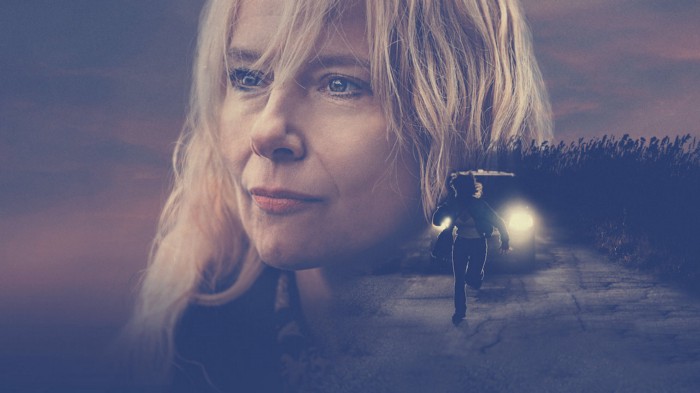
If you come to Lost Girls (2020, Netflix) seeking a serial killer movie with lots of gory details and pretty dead girls, you’re going to be sorely disappointed. If you like police procedurals and their (usually female) corpse-of-the-week formulas, you might not be satisfied with this film. If, however, you’re interested in a deep, dark look into the shameful ways vulnerable young women are thrown away and ignored even in death, then keep reading. Sadly, Lost Girls is based on a true story, and even worse than that is the realization that this film barely scratches the surface of a larger structural problem in our society that treats all women like they’re disposable.
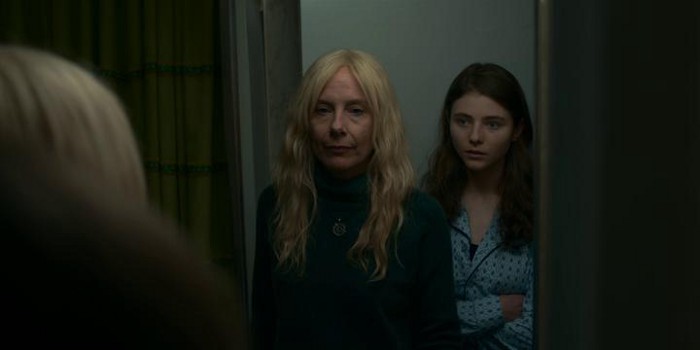
Lost Girls opens with a soft, sweet song incongruously played over a scene of a young woman running for her life, at night, alone, with sinister headlights following her and seemingly ready to run her down. From there, we see hardworking blue-collar single mom, Mari Gilbert taking shifts at separate jobs, fielding phone calls from one of her daughter’s schools regarding a suspension, and being an overall supportive mom. Mari tells two of her daughters, Sherre (Thomasin McKenzie) and Sarra (Oona Laurence) that their older sister, Shannan, will be joining them for dinner; this seems like a special occasion for Mari, while Sherre and Sarra are less impressed, and therefore, are less disappointed when Shannan never shows up. A phone call from a strange doctor, several phone calls from Shannan’s boyfriend, and Mari’s inability to reach Shannan set off her Mommy Senses, thus she begins the process of reporting her daughter as a missing person. The local police schmuck Dean Bostick (Dean Winters, basically playing every character he’s ever played) refuses to take Mari seriously, and even police commissioner Richard Dormer (Gabriel Byrne) seems more cautious of his reputation than being helpful. This sends Mari down a disturbing path of tracking Shannen’s whereabouts herself. At every turn, Mari’s mocked, stalled, dismissed, blamed, even threatened. Despite the harassment, Mari doesn’t give up and never lets herself succumb to shock and dismay. Mari stays strong even when she finds out that her daughter became a sex worker and went missing after a job with a john in a rich, gated seaside town. By the time Commissioner Dormer gets off his butt and actually does something helpful, Mari had assembled a small army of mothers and sisters of other young sex workers who have also gone missing in the same Long Island town. There’s no happy ending here, but there is at least closure.
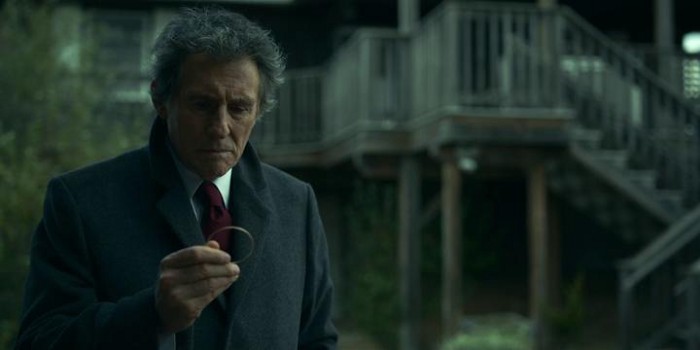
The power of Lost Girls lies in the way it flips the script on the serial killer genre. This isn’t Silence of the Lambs, with its focus on not one, but two male killers. Lost Girls isn’t a macabre gawking at the dead bodies of women who were tortured, instead, it sets its focus entirely on Mari and her search. This film passes the Bechdel Test a million times over by remaining sympathetic, not only to Mari but to the other mothers and sisters of victims. Let this be a lesson to us all: when you put a woman in the director’s chair (Liz Garbus), you’re going to get more compassion for the victims and their families rather than putting the spotlight on their killers; and yes, that’s a very general statement, but I stand by it.
Mari Gilbert is no one’s fool. She figures out early on that the very people who should be helping her are the same people blocking her efforts at every turn. At one point she’s called “feisty” for pointing out the haphazard search for her daughter; later on, she’s flat-out laughed at for posting “missing person” fliers in the police station. The all-male police department likes to pat her on the head as if she’s adorably hysterical. “Who spends this much time looking for a missing hooker?” Bostick asks, minutes before he’s seen getting a lap dance from a scantily-clad dancer. It’s Mari who unleashes righteous anger when her daughter is constantly referred to as a “prostitute,” “whore,” and “hooker” on the news as if that was Shannan’s only relevant quality. Instead of focusing on the mental health care system that let Shannan slip through the cracks as a child — forcing Mari to make the heartbreaking and agonizing decision to put Shannan in foster care at the age of 12 — Mari is blamed for the life choices that her daughter felt she had to make to get by; no wonder Mari is so angry and relentless. Mari’s not a Mama Bear; she’s a Mama Dragon, ready to aim her fury where it belongs.
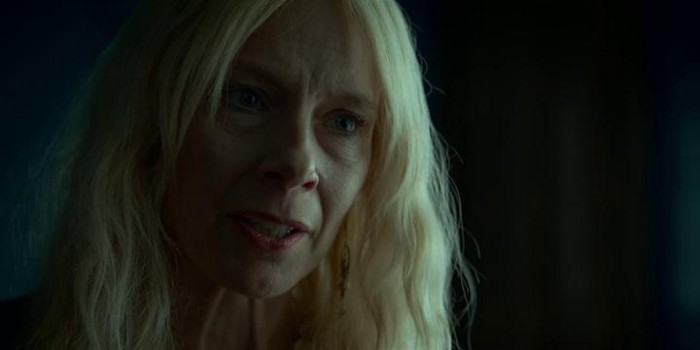
Lost Girls is all about the women; the daughters and sisters are spoken of as fully-formed, multi-layered, well-rounded human beings, not just dead hookers. We don’t get to gasp at their corpses like these movies usually do. These victims were young women, alive and full of hopes and dreams like anyone else. While women in sex work are blamed for making bad choices in life, Mari and the other families turn the narrative on its head by asking: “Why are our girls to blame at the exclusion of everyone else?” No one makes their choices in a vacuum; nobody wakes up one day and decides to be a drug-addicted prostitute; no one decides to work such a high-risk job unless they felt they had no other choice. Lost Girls doesn’t glamorize the victims’ lives by any stretch of the imagination, but neither does it treat them like garbage. And when the police, media, and townsfolk act as if these young women somehow deserved what they got, the army of mothers and sisters are ready to loudly and strongly correct every one of them.
Aside from a few uneven editing choices, Lost Girls is a wonderfully done film full of long, lingering shots that shine a spotlight on the working class conditions Mari comes from and the well-intentioned ways she works tirelessly for all three of her daughters. Mari has no choice but to bring her two younger daughters along for most of her search, and anyone who can sit there and watch little Sarra learn the heartbreaking truths about her older sister and not feel a stab in the chest probably isn’t human. When thinking about Lost Girls, the word “unflinching” comes to mind. Try and remember that this is a true story (the photos of the four previous victims are their real-life photos), then go ahead and try not to feel compassion for Mari, Shannan, Sherre, and Sarra.
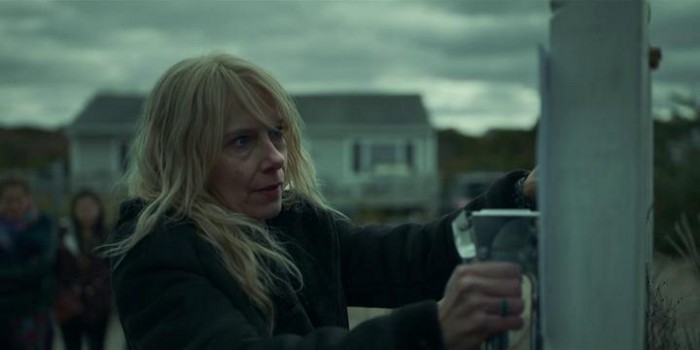
While Lost Girls contains a great deal of hope, it’s not a happy movie by any stretch of the imagination. Don’t watch this expecting to feel good at the end. When you realize that there are any number of young women out there suffering and dying at the hands of a society that tells them they are worthless, refusing to help them when they need it most, and then acting as if they asked to be killed, you wouldn’t be happy about it. If you want a sympathetic look at a neglected and spat-upon segment of society, Lost Girls will shine a light for you.

Movie Review originally published by Meredith Morgenstern on Medium
Related lists created by the same author
While the film didn’t hit me as emotionally as I wanted it to, I still enjoyed it. I simply wish there was a little more, particularly with the world building.